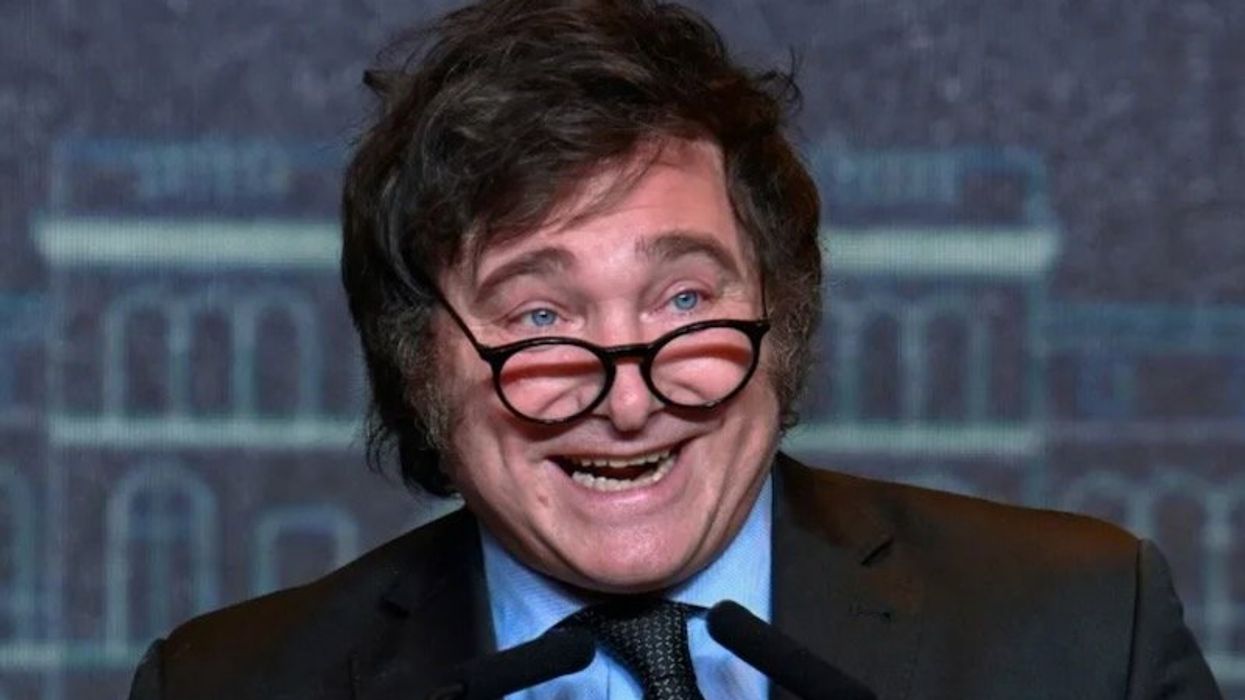
Argentine trains ground to a halt and hospitals were left running on fumes this week as austerity measures sparked mass walkouts -- even as the country boasted its first budget surplus in 12 years.
More than two months after libertarian President Javier Milei took office vowing to slash spending, his massive cuts are taking a toll and -- as he warned -- for now worsening people's economic situation.
Annual inflation has hit 254 percent and since Milei ripped away hefty transport and fuel subsidies the price of bus tickets has more than tripled.
"Now I know what it's like to walk," 42-year-old domestic worker Yanina Salto told AFP, who used to take four trips a day to get between jobs.
The cost of medicine has soared over 300 percent year-on-year.
While the government decreed a 30 percent salary increase by March, this is far less than the 85 percent demanded by labor unions -- and the walk-outs are mounting.
On Wednesday, train drivers downed tools, and on Thursday healthcare workers across the public and private sector went on strike, with only hospital emergency rooms expected to function.
Teachers have called a strike for the start of school next week, and the country's main CGT union is debating another general nationwide walkout.
"Social conflict will continue to grow," warned CGT union secretary Pablo Moyano. "Unfortunately this is going to end badly."
'Rock bottom'
"There is no money," said Milei when he took office, vowing to put an end to "decades of decadence" by his overspending predecessors, marked by repeated inflationary crises and debt.
The 53-year-old self-described "anarcho-capitalist" devalued the peso by over 50 percent, cut tens of thousands of public jobs and halved the size of the government.
The government, though, is projecting optimism -- and touting achievements.
"When we hit rock bottom, we will bounce back," Milei said.
In January, Argentina reported its first monthly budget surplus in 12 years, while boosting the country's meagre foreign currency reserves from $21 billion to $27 billion.
Milei's government has received praise from the International Monetary Fund -- to which it owes $44 billion -- for its "bold actions to restore macroeconomic stability".
Economist Salvador Vitelli, from the Romano Group, said the "unusual fiscal result" was explained by a 39.4 percent drop in spending due to cuts in pensions, subsidies, and salaries.
Despite the eye-watering interannual inflation, the government says it is coming down. Monthly inflation dropped to 20 percent in January after hitting 25 percent in December.
Economy Minister Luis Caputo said he hopes for a figure closer to 10 percent in February, and single digits by the second half of the year.
Nevertheless, economist Juan Manuel Telechea, of the German Abdala Foundation thinktank, said Milei's extreme belt-tightening measures are "exceptionally risky, given it can deepen the recession and the drop in the population's purchasing power."
This "will test the social tolerance of a society that has already been hit hard," he warned in a column on the Cenital news website.
'Put up with it'
Milei swept to power on a wave of disgust with previous governments led by traditional parties who failed repeatedly to halt the country's economic woes.
Many who voted for him said at the time that they accepted hard times were coming.
"We must let the president govern," said 47-year-old Luis Dominguez, even as he complained about the rise in the price of basic goods such as milk.
"In order to never see the same old faces again, people are willing to put up with it," said Martin Menem, president of the Chamber of Deputies.
Recent opinion polls show Milei's support is starting to wane, with slightly less than 50 percent having a positive opinion of the president.
However, for the first time in a long time, a majority of those surveyed said they expect to see the economic situation improve over the next two years.
Another barometer of Argentine economic anxiety is the parallel dollar exchange, which has remained stable for weeks at around 1,100 pesos per dollar. The official dollar is worth 882 pesos.
© 2024 AFP











 Bengali (Bangladesh) ·
Bengali (Bangladesh) ·  English (United States) ·
English (United States) ·